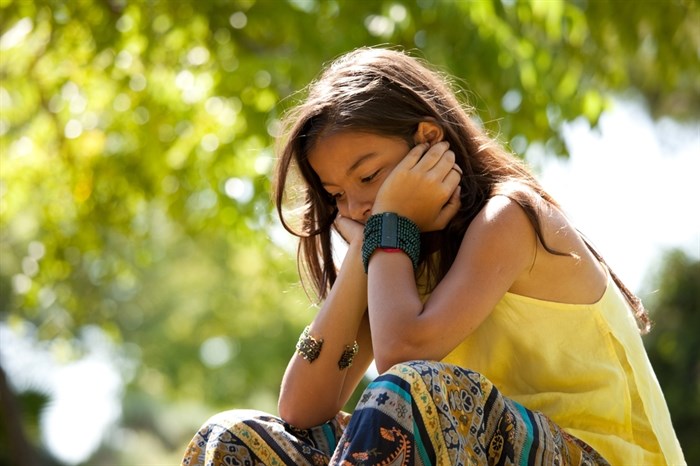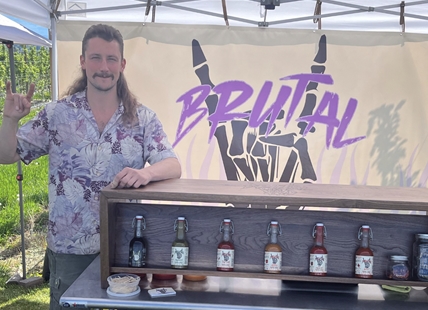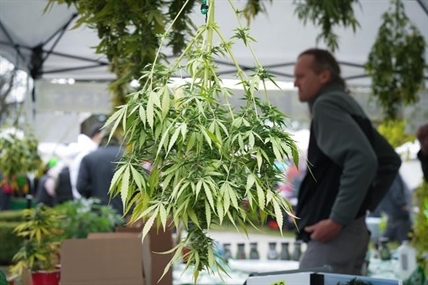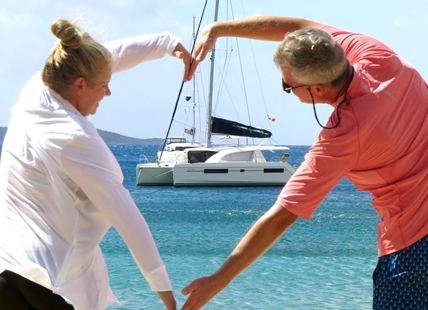HIGHWAY TO HOMELESSNESS: A Kamloops foster care survivor’s account
A woman who grew up in the foster care system in Kamloops has spent most of her life on and off of the streets, moving from placement to placement, and self-medicating with drugs and alcohol.
Now in her 30s, Kim Beesley is four years sober, living in Chilliwack raising her children and going to work.
But the road to building a better, sober life was long and treacherous, something Beesley blames on BC's foster care system.
“As youth in care we’re so used to bouncing between homes, many of us have been in at least ten placements by the time we age out,” she said. “When you age out you don’t have life skills. You can’t budget, write a resume, get a job or function normally in society.”
Beesley entered the foster care system when she was 10 years old and was placed into respite homes with other kids in care.
“I went to short-term respite homes and then a long-term home where the people running it sent us to this farm with these crazy religious people for two weeks at a time," she said. "We were being watched by unapproved resource homes.”
When she was 14 her mother abandoned her and Beesley had a suicide attempt. She ended up in a psychiatric ward for two months until a foster home was found.
“I was really lucky when I got into foster care as my foster mom was gentle and loving and nurturing, she taught me how to self-advocate, but I had behavioural and mental health issues by then,” she said.
As a teenager she was lucky enough to be part of a program that helped her learn how to be independent, teaching classes on STDs, first aid and budgeting skills but it has since been closed.
“The program was slashed by the Liberal government and fizzled out,” Beesley said. “The opioid and homelessness epidemic we see today can be linked to this failure, cutting essential family services should never be done.”
When she was 16, Beesley was placed into an independent living space in an apartment on Tranquille Road with other teenagers in the system. She was having mental health issues and abusing drugs.
“We got into sex trafficking, it was easier to make money that way than to get a real job when we had no life skills. We were trafficked between Salmon Arm and Vancouver, doing party favours and getting free drugs. Some of those girls are still street entrenched, I know one who died.”
While at the independent living apartment, Beesley said she was receiving $60 for food from the government.
“No one helped feed you, we ate condiments for meals,” she said. “We had mustard sandwiches every day and if we were lucky, we’d get a gas station hot dog. We’d stand outside gas stations asking people for money.”
READ MORE: Some Kelowna residents want to protect heritage neighbourhoods from infill: petition
She dropped out of school before aging out of the system and then went on welfare. Beesley spent her 20s coping with anxiety and mental health issues by drinking and doing drugs.
The child welfare system is often described as a highway to homelessness with an estimated quarter of youth aging out of the system at age 18 becoming homeless, and roughly half of homeless people across the country having spent time in the system.
Beesley knows the highway well.
She has experienced homelessness 13 times. She said there are many reasons why kids in the foster care system have such a greater chance of becoming homeless. Youth in care can lack life skills, and have behavioural and mental health issues that make it difficult to transition into adulthood.
Often times, a youth in care runs away from a placement and ends up living on the street.
“A lot of them run away because their needs aren’t being met or they find other foster kids on the streets and there is a community there. Lots of kids run away from the rules and abuse of the system where its easier to be drunk and high than to navigate life.
“You’re always a problem, you’re always a burden, there is always going to be an adult that is going to document what you do in a negative light.”
READ MORE: Peachland man battling to stay in tiny home facing court, hefty fines
Beesley said some foster kids have been hurt by abuse in foster care, including sexual abuse from foster siblings or foster parents.
“It is easier for some kids to run away, there is distrust for authority and (foster) parents and they don’t listen,” she said. “Why listen, no one give a crap about me.”
READ MORE: Kamloops volunteer in her 90s known as 'Grandma' among city's homeless
Beesley goes to therapy regularly. After four years of sobriety she said she’s feeling better but still has triggers that stem from feelings of abandonment.
“My mother wound as an adult is deep, I pay for private counselling to heal this stuff,” she said. “It isn’t covered but all the free stuff doesn’t work for me. I need to rewire my nervous system in my brain.”
READ MORE: BC teacher caught with child sex abuse images banned for life
Beesley is an advocate for improving the child welfare system and has done public speaking on the topic at parent associations since she was a teenager.
“How dare society shame us for not functioning, we’re systemically traumatized as youth. I consider myself lucky, a lot of the foster kids I grew up with are still street entrenched or dead.”
To contact a reporter for this story, email Shannon Ainslie or call 250-819-6089 or email the editor. You can also submit photos, videos or news tips to the newsroom and be entered to win a monthly prize draw.
We welcome your comments and opinions on our stories but play nice. We won't censor or delete comments unless they contain off-topic statements or links, unnecessary vulgarity, false facts, spam or obviously fake profiles. If you have any concerns about what you see in comments, email the editor in the link above. SUBSCRIBE to our awesome newsletter here.










